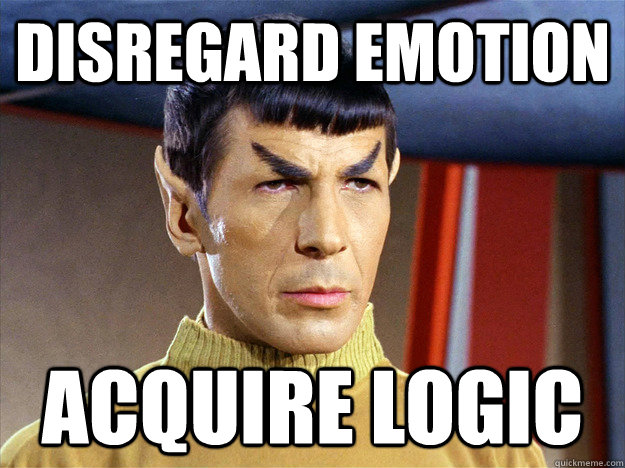Before my debate with Dr. Brown, someone tipped me off that Dr. Brown had been advised to use the argument I discuss below. I read it and thought – surely not! Surely a scholar like Dr. Brown won’t try to use such a confused line of reasoning. He did though, briefly – and it fell flat. Here, an instructive look at an attempt by young apologist Vladimir Susic to show that biblical unitarian theology is incoherent (self-contradictory). The piece doesn’t start well:
Unitarian Scholars like Dr Dale Tuggy like to make deductive arguments trying to put forth that doctrines of a Multipersonal Deity, such as that of The Trinity would be in some way Illogical because of the Law of identity.
Nope! This is a common misunderstanding of my work. My point all along has been that Trinity theories are late and many. And because the many Trinity theories differ, it is pointless to object that “The Trinity” is incoherent. Some Trinity theories are demonstrably incoherent, others are not. Of course, like other biblical unitarians, my main concern is not coherence but rather fit with scripture.
…the goal of today’s article is to show that the doctrine of Biblical Unitarianism… is purely illogical based on deductive argumentation derived from certain Biblical passages. The passages in mind today will be Jude 1:4 and 1 Corinthians 8:6. These passages state that Jesus is “The only Sovereign Lord” and “One Lord” respectively.
Here then, comes the first Anti-Unitarian deduction…
1. Jesus is our only Sovereign and Lord (Jude 1:4)
2. Unitarianism is true (Optionally False Premise)
3. Since only one Person is God (thus Father and Son do not share attributes…), Father could not possibly be our only Sovereign and Lord.
4. If the Father is not our only Sovereign and Lord he could not possibly be God
5. Conclusion: Therefore either Unitarianism is NOT true (Optionally False Premise is Factually False) or Father is not God (Optionally False Premise is NOT False but True)

This argument is poorly put together, and is not clearly valid – 5 doesn’t seem to follow from 1-4. He goes on to say that every premise but 2 is self-evident, which shows that he doesn’t know what “self-evident” means. This argument clarifies nothing. Our young apologist needs to learn what a valid argument is.
I think he means to argue something like this:
- Unitarians must accept that Jesus is our only Lord. (Jude 1:4).
- Unitarians must accept that the Father is our only Lord. (scripture)
- Unitarians must deny that Jesus and the Father are the same being. (definition of unitarian theology)
- Unitarians affirm of two different beings, that each is the only Lord. (1-3)
- Unitarians are committed to incoherent claims. (4)
Here, we have a valid argument. Hence, one must either affirm the conclusions (4,5) or deny at least one premise (1-3). We of course accept 3. We would simply point out that the NT term “Lord” is ambiguous. It can be used of God, and of the exalted Jesus. In these last days two rule over us: the Lord God, and under him, the Lord Jesus. If you like, call these two meanings of “Lord” Lord1 and Lord2. Then we can see the mistake in the above argument. Let’s go through different ways to remove the ambiguity. If Lord1 is meant in premise 1, then we deny premise 1. If Lord2 is meant in premise 2, we deny premise 2. But for the argument to be valid (for 4 to follow from 1-3, we must used “Lord” in the same sense in 1 and 2). But however we do that, we get an argument that anyone has strong biblical reasons to reject as unsound (because of a false premise, either 1 or 2).
Now, what’s unusual about Jude 4 is the application of “Master” (or “Sovereign” – Gr. despotes) to Jesus. This is unusual in the NT explains the textual variants here (see note 20 here). Those scribes, not wanting the reader (like some ancient monarchians) to confuse together Jesus and God, tried to clarify by adding the word “God.” (Reflected in the KJV’s translation.) But of course there is no problem with calling both God and Jesus “Master,” any more than there is a problem with calling each “Lord” – so long as we make clear which one is meant!
Here’s how our young apologist presses his objection:
From my experience in defending the aforementioned deduction, Unitarians, like Dr. Tuggy, in desperation, knowing that the only premise that could plausibly be twisted in some way is Premise 1, have tried stating that Jesus is just our Lord in the human, Kingly sense. That he is a Human, enthroned in Heaven ruling over us. Completely ignoring that this is utterly blasphemous….
Well, Mr. Susic has a problem with the NT here, not so much with us! He just refuses to accept that God has exalted this man, his unique Messiah and servant, to his right hand.

He gives another version of his argument above in relation to 1 Corinthians 8:6. But this again just ignores the obvious ambiguity of “Lord” in the NT. Sometimes it is used of God, and sometimes it is used of the Son of God, the man Jesus. (See the various meanings in the lexicon entry for kurios here.)
Lexicons are our friends. Let us gladly accept their help. Logic too is a gift from God. Let’s learn it and argue clearly.

The article reads that, “Lexicons are our friends. Let us gladly accept their help.”
The NIDNTT reads, “Belief in the one, only and unique God (Matt. 23:9; Rom. 3:30; 1 Cor. 8:4, 6; Gal. 3:20; 1 Tim. 2:5; Jas. 2:19) is an established part of primitive Christian tradition” (2:73, God, J. Schneider). Jude 1:4 teaches that “the uniqueness of God can be applied without qualification to Jesus” (2:725, One, K. H. Bartels). Unique is defined as “existing as the only one or as the sole example; single; solitary in type or characteristics” (Webster’s Encyclopedic Unabridged Dictionary, page 1554) while qualification is defined as a “restriction” (ibid., page 1174).
There is no restriction in that Christ shares in the “uniqueness” (singleness) of the one and only God.
1. R. C. Trench (2 Peter 2:1 and Jude 1:4): it is to Christ, but to Christ as God, that the title is ascribed (Synonyms of the New Testament, kyrios, despot?s).
https://www.blueletterbible.org/lang/trench/section.cfm?sectionID=28
2. William Mounce: God is the only entity in his class; he has no peers (cf. Jn. 5:44; 17:3; Rom. 16:27; 1 Tim. 6:15; Jude 4; Rev. 15:4) (Mounce’s Complete Expository Dictionary of Old and New Testament Words, Only, page 487).
We are informed by William Mounce that “God is the only entity in his class,” but elsewhere we read that this passage refers to the Lord Jesus.
William Mounce: Jesus is the despot?s in…Jude 4 (Mounce’s Complete Expository Dictionary of Old and New Testament Words, Master, page 442).
For those who deny the Lord Jesus is God, to whom is your “only despot?s” in heaven in reference to? The Father (Acts 4:24) or the Lord Jesus (Jude 1:4)?
I have a question
Who is the “subject” in john 1:11 ?
Christ or logos
“direct answer”
Evidently, according to Susic’s logic, Sarah was a very confused person and thought her husband was God. She called Abraham lord, as shown in 1 Peter 3:6. I suppose one way to explain this away is to claim she was drunk. But wait, the passage is encouraging women to be like Sarah!
We must also remember that Jude, the author of the passage in question (Jude 4) was the half brother of Jesus. They grew up together. If he believed that Jesus was fully God, Jude is one who should have known and championed this fact with great clarity. But no, he calls God in verse 4 “ho theos”, or “the God”. Jesus is lord to Jude, not God.
Jude did champion the fact that the Lord Jesus is God. He does so right from the very beginning of his letter in that he referred to himself as a “slave” (doulos) of Jesus Christ (Jude 1:1).
Murray Harris: The very existence of the phrase ‘slave of Christ’ alongside ‘slave of God’ in New Testament usage testifies to the early Christian belief in Christ’s deity. Knowing the expression ‘slave of the Lord’ from the Septuagint, several New Testament writers – John, Peter, Paul, James and Jude – quietly substitute ‘Christ’ for ‘the Lord’, a substitution that would have been unthinkable for a Jew unless Christ was seen as having parity of status with Yahweh (Slave of Christ: A New Testament Metaphor for Total Devotion to Christ, page 134). Indeed, according to the Jewish Encyclopedia of the Bible (1901), “devoted worshipers of the Deity were commonly designated as God’s servants…” (Servant of God)
https://www.studylight.org/encyclopedias/tje/s/servant-of-god.html
Comments are closed.